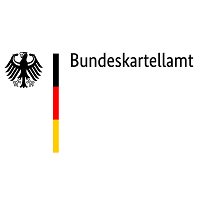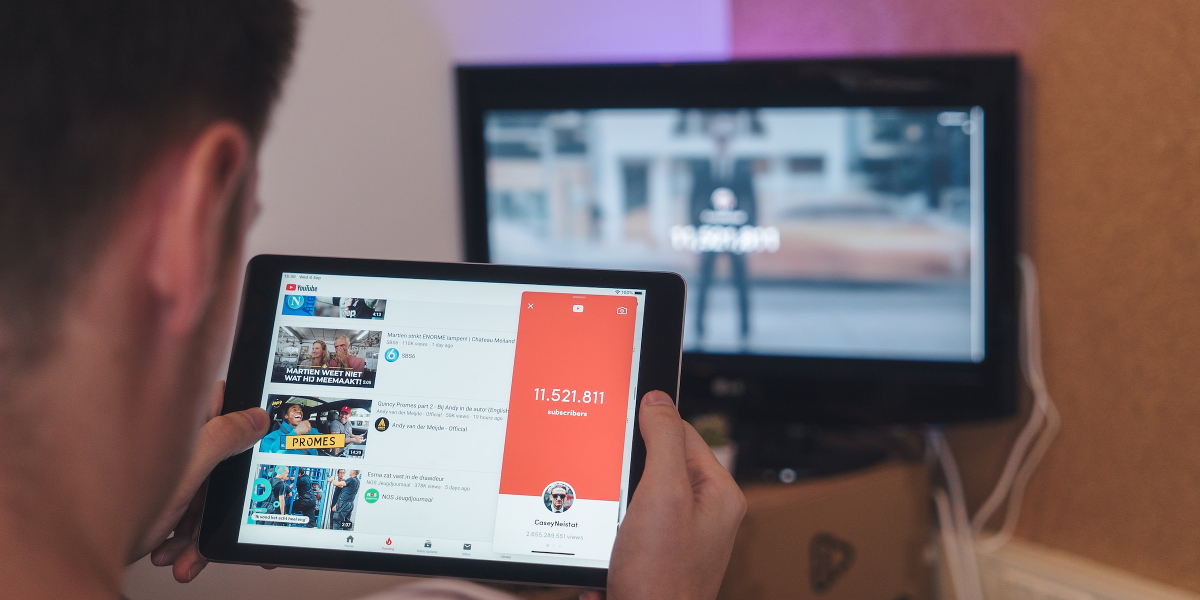Every other week it seems we’re reading about new antitrust cases. The phrase “tech giants” is often thrown around in this industry as shorthand for the four biggest companies who dominate the ecosystem: Google, Apple, Facebook and Amazon (GAFA). But are these big tech companies becoming too big?
The reasons why these antitrust cases are brought vary; from allegations of unfair search engine practices to claims tracking changes are anti-competitive.
These cases have been brought in different countries and by different bodies. It can be hard to track the progress of each case. Back in 2019, VideoWeek listed the ongoing antitrust cases, some of these are still ongoing and a whole range of new cases have been brought.
Here, we have listed the ongoing antitrust cases against GAFA in the US and Europe.
US
In the US, there are a number of antitrust cases ongoing against GAFA. These are being pursued by different bodies including the Department of Justice and collectives of state attorney generals.
 US Department of Justice (DOJ)
US Department of Justice (DOJ)
Who it’s against: Google
Date announced: 20th October 2020
What’s happened so far: In October 2020, the US Department of Justice, along with 11 state attorney generals, filed a lawsuit against Google. The lawsuit alleges that Google uses “anticompetitive and exclusionary” practices in its search engine and ad business.
Some of the specific allegations that the DOJ make against Google include that it maintained a monopoly by “entering into exclusivity agreements that forbid preinstallation of any competing search service” and “entering into tying and other arrangements that force preinstallation of its search applications in prime locations on mobile devices and make them undeletable, regardless of consumer preference”.
What happens next: If you were hoping for an immediate resolution to this one then you’re not in luck. In a December hearing US District Judge Amit Mehta set a tentative date for the case of 12th September 2023.
 Federal Trade Commission (FTC)
Federal Trade Commission (FTC)
Who it’s against: Facebook
Date announced: 9th December 2020
What’s happened so far: In December 2020, The Federal Trade Commission (FTC) sued Facebook, alleging that the social media company had maintained its monopoly status through anticompetitive tactics. There was also a parallel case brought by 48 state attorney generals. The cases cited Facebook’s acquisition of Instagram as one piece of evidence.
The FTC case was dismissed in June 2021 by a Federal Court. In a statement the court said “these allegations — which do not even provide an estimated actual figure or range for Facebook’s market share at any point over the past ten years — ultimately fall short of plausibly establishing that Facebook holds market power.”
At the same time, the judge dismissed the states’ case, saying that they had waited too long to file the suit.
What happens next: The FTC has a chance to file an amended lawsuit against Facebook. Some have speculated that to do this, the FTC may narrow its case to focus solely on Facebook’s 2012 and 2014 acquisitions of Instagram and WhatsApp. It only has 30 days to do this, so watch this space.
 Bipartisan Coalition of State Attorney Generals
Bipartisan Coalition of State Attorney Generals
Who it’s against: Google
Date Announced: 16th December 2020
What’s happened so far: A bipartisan group of 38 State Attorney Generals announced in December that they would be suing Google, alleging that Google illegally maintained a monopoly in general search and search advertising through anticompetitive conduct and contracts.
The European Union
 The European Commission
The European Commission
The European Commission has three separate antitrust cases in progress against Facebook, Google and Amazon. Below we lay out the three investigations:
Who it’s against: Google
Date announced: 22nd June 2021
What’s happened so far: In June The European Commission launched a formal investigation into Google looking into its dominant role in the advertising industry. The investigation has been informally underway since 2019. The formal investigation will examine whether Google is distorting competition by restricting access by third parties to user data for advertising purposes on websites and apps, while reserving such data for its own use.
What happens next: The Commission will investigate whether Google has indeed acted anti competitively. A Google spokesperson said that the company would engage constructively with the European Commission “to answer their questions and demonstrate the benefits of our products to European businesses and consumers.”
Who it’s against: Facebook
Date announced: 4th June 2021
What’s happened so far: The European Commission has launched an investigation into whether Facebook breached EU competition rules by using advertising data gathered in particular from advertisers in order to compete with them in markets where Facebook is active such as classified ads.
What happens next: The UK’s Competition and Markets Authority (CMA) has launched a similar investigation. The European Commission has said that it “will seek to work closely with the CMA as the independent investigations develop”.
Who it’s against: Amazon
Date announced: 17th July 2021
What’s happened so far: Back in 2019, the European Commission began formally investigating Amazon. The investigation was focused on whether Amazon’s use of sensitive data from independent retailers who sell on its marketplace was in breach of EU competition rules. On 10th November 2020, The European Commission informed Amazon of its preliminary view that it has breached EU antitrust rules by distorting competition in online retail markets. It also announced that it was opening a second investigation into Amazon’s ecommerce business practices.
What happens next: In March of this year, the Financial Times reported that the European Commission was struggling to build its case against Amazon. According to the report, EU officials are struggling to understand how Amazon’s algorithm works.
UK
 Competition and Markets Authority (CMA)
Competition and Markets Authority (CMA)
The CMA has three ongoing investigations into digital markets against Facebook, Apple and Google.
Who it’s against: Facebook
Date announced: 4th June 2021
What’s happened so far: The Competition and Markets Authority (CMA) has launched an investigation into whether Facebook misuses the data it collects to benefit its own services. The European Commission has also launched its own investigation into how Facebook uses data, and the CMA has said that it will collaborate with the EC.
Who it’s against: Google
Date announced: 8th January 2021
What’s happened so far: The Competition and Markets Authority (CMA) launched an investigation into Google’s removal of third-party cookies. The investigation was opened in January. On the 11th June, the CMA published a notice of intention to accept commitments that were offered by Google, and invited submissions from third parties on this. The consultation will close this month.
What happens next: The CMA will review these third party submissions and consider how to proceed.
Who it’s against: Apple
Date announced: 4th March 2021
What’s happened so far: The Competition and Markets Authority has launched an investigation into whether Apple’s App Store practices are anti-competitive. The CMA is carrying out the initial investigation, which is focused on “the terms and conditions governing app developers’ access to Apple’s App Store”.
What happens next: The CMA expects to conclude their investigation in September 2021.
Germany
 German Federal Cartel Office (FCO)
German Federal Cartel Office (FCO)
The FCO has a number of antitrust cases open against Apple, Google and Amazon. The watchdog has made use of reformed competition laws, which give it increased power to launch investigations.
Who it’s against: Apple
Date announced: 21st June 2021
What’s happened so far: The German watchdog has said it will examine whether Apple has “paramount significance across markets” that squashes competition.
Who it’s against: Amazon
Date announced: 18th May 2021
What’s happened so far: The FCO has said that it will investigate whether Amazon has an “almost unchallenged position of economic power”. It will look to see whether Amazon has exploited its market dominance.
Who it’s against: Google
Date announced: 25th May 2021
What’s happened so far: The FCO launched two investigations into Google and its parent company, Alphabet. Under the new laws in the country, the watchdog is permitted to prevent certain anti-competitive activities, if the companies carrying them out are deemed to have “paramount significance”. The first investigation will investigate whether Google is of “paramount significance”. The second investigation will look at Google’s data processing practices to see whether they entail anti-competitive behaviour.
France
 French Autorité de la Concurrence
French Autorité de la Concurrence
Who it’s against: Google
Date announced: 24th October 2019
What happened so far: A host of French media companies filed a complaint in October 2019 with France’s competition authority, the French Autorité de la Concurrence, over its refusal to pay to display their content in its search results.
In June, Google agreed to pay regulators a fine of nearly $270 million and said that it would make changes to its global advertising business to ensure it did not abuse its dominance.
What happens next: Now that the case has been settled, the French Watchdog has said that publishers could be able to seek damages from Google.
The Netherlands
 The Netherlands Authority for Consumers and Market (ACM)
The Netherlands Authority for Consumers and Market (ACM)
Date announced: 11th April 2019
Who it’s against: Apple
What’s happened so far: In 2019, The Dutch Authority for Consumers & Markets (Autoriteit Consument & Markt, or ACM) announced an investigation into Apple’s App Store. The case looks specifically at rules requiring software developers to use its in-app payment system. In February, Reuters reported that the ACM was nearing a draft decision on the matter. However, it did not give any indication as to how it would rule.
What happens next: Despite indications that the ACM would rule soon, there is still no outcome in this case.
Italy
 Italian Competition Authority (AGCM)
Italian Competition Authority (AGCM)
Date announced: 28th October 2020
Who it’s against: Google
What’s happened so far: In 2020, the Italian Competition Authority (Autorità Garante della Concorrenza e del Mercato or AGCM) launched an investigation into Google’s display ad business. In a statement, the AGCM said it is investigating whether “the discriminatory use of the huge amount of data collected through its various applications, preventing rivals from competing effectively as well as adversely affecting consumers”. The investigation was triggered by a complaint from IAB Italy.
What happens next: The investigation is due to be wrapped up by November 2021.




